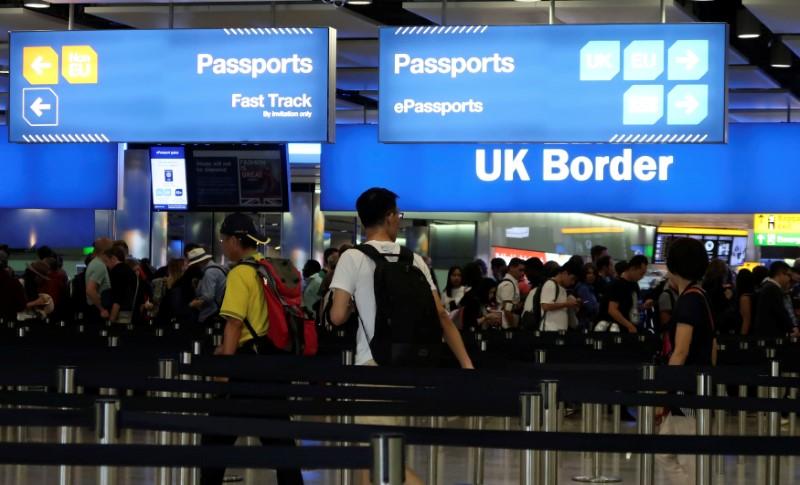LONDON, (Reuters) – Net migration to Britain fell by the largest amount on record in the 12 months after the Brexit vote, with more than three-quarters of the drop due to more EU citizens leaving and fewer arriving, official data showed on Thursday.
Net migration tumbled by 106,000 to 230,000 people in the 12 months to June, the Office for National Statistics (ONS) said.
Some 82,000 of the decline was due to EU citizens, cutting net migration from the bloc to its lowest level since June 2013.
The total fall in net migration was the biggest since records began in 1964.
The ONS said Brexit was likely to be one of the factors driving the fall.

Prime Minister Theresa May has said she wants to reduce net migration to the tens of thousands, a promise first made by the government in 2010 and designed to reassure Britons worried about the impact immigration had on public services.
Net migration into Britain has exceeded 100,000 in every year since 1998.
Jonathan Portes, a professor of economics at King’s College London, linked the fall to Britain’s economic slowdown and the weakening of the pound – which means foreign workers earn less in Britain when converted to their own national currencies – as well as wider social issues.
“It cannot be good news that the UK is a less attractive place to live and work, and that we will be poorer as a result,” said Portes, who has previously argued that Brexit is likely to hurt Britain’s economy.
He predicted that net migration to Britain was likely to fall further to 150,000 over the next few years.
Steven Woolfe, an independent British lawmaker in the European Parliament who campaigned for Brexit, said long-term migration remained high.
“This number again highlights the greater need for Britain to have a brand new immigration system, starting on Brexit day one,” he said on Twitter.
Britain is scheduled to leave the EU on March 29, 2019.
Larger numbers of foreign workers have helped Britain’s economy to expand. The Bank of England has said almost all of its growth in the last decade stems from an increase in workers.
Britain’s retail, hospitality, manufacturing and agriculture sectors are particularly reliant on staff from abroad.
The BoE has said a fall in migrant workers coming to Britain is likely to contribute to a new, slower “speed limit” for the economy, meaning it would be more prone to inflation.
Opinion polls have shown immigration topping the list of concerns among people who voted for Brexit in the 2016 referendum, in which 52 percent backed leaving the EU.
The ONS said the scale of the drop in net migration in the most recent data partly reflected a strong run-up in migration last year, which pushed it to a record high in June 2016.





